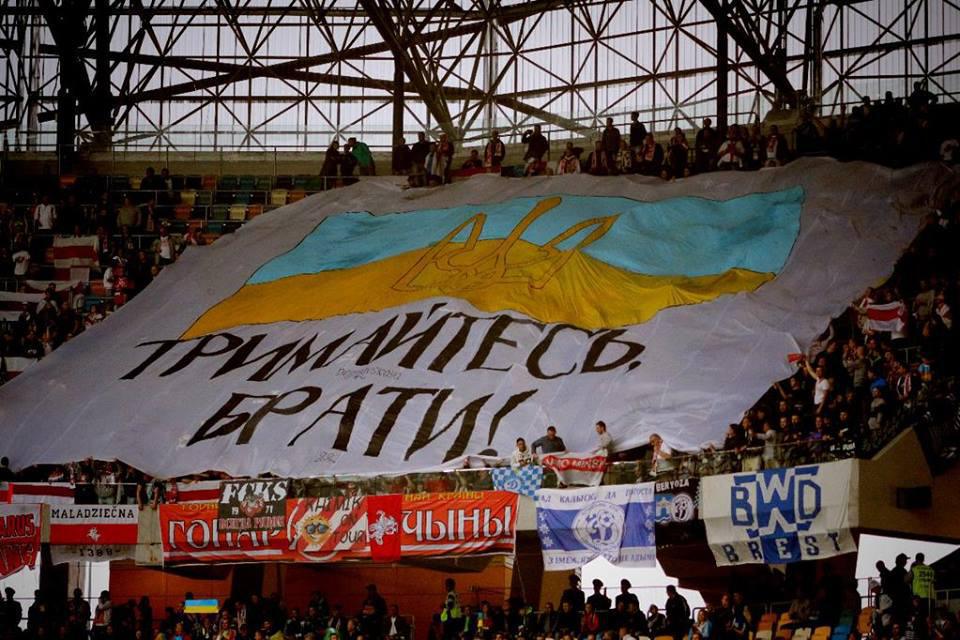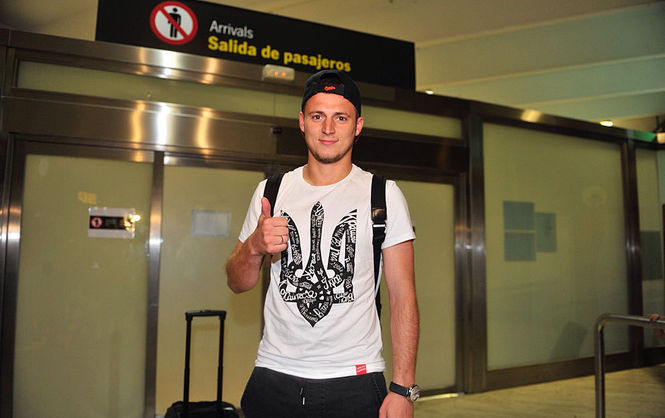Earlier this week, Ukraine’s newly released football kit sparked outrage in Russia. In response to Ukraine’s new shirt, the Russian Federation lodged an official complaint to the Union of European Football Associations (UEFA).
The football kit in question displays the phrases “Glory to Ukraine” and “Glory to Heroes,” as well as a map of Ukraine that includes Crimea and the Donbas.
While Ukraine maintains its innocence, the Russian Federation claimed the design of the new shirt was an act of “political provocation.”
UEFA’s kit-related provisions prohibit political slogans and other narratives from being printed on football shirts. To this point, Russia argued
that Ukraine used “political motives” and that the shirt went “against the basic principles of the UEFA kit regulations.”
In response to these accusations, UEFA stated that it had approved Ukraine’s new kit as it was “in accordance with the applicable equipment regulations.”
European football’s governing body, however, has now altered its stance. According to recent reports, UEFA has ordered Ukraine to remove the “Glory to Heroes!” phrase from the kit. Ukraine’s Association of Football was in talks with UEFA to reach an agreement on the design of the new shirt; these concluded yesterday with a decision that the phrase must be covered up with a map on the player's uniform.
As UEFA and Ukraine undergo these deliberations, why has this kit become so controversial? Why is Russia outraged, and what is the history and symbolism behind the map and phrases used on this football shirt?
Russia’s protests are nothing more than an attempt to spread disinformation. In Russia’s first complaint, Russian Foreign Affairs Department Press Director Maria Zakharova stated that Ukraine’s football kit incorporated the “Russian Crimea.” She then noted that the slogans used were an act of “political provocation.” Ukraine’s new kit also includes the Russian-occupied regions of Donetsk and Luhansk.
The facts, however, tell a different story. Following Ukraine’s Revolution of Dignity in 2013, Russia illegally annexed the Crimean peninsula in the spring of 2014. During the military incursion, Russia claimed
that it was protecting the rights of the Russian speakers and ethnic Russians in Crimea.
Russia’s actions violated Ukraine’s national sovereignty, and a snap session was called at the United Nations (UN). During this meeting, the international body ruled that it would refuse to recognize the Russian annexation of the peninsula. To this day, only six of the UN’s 193 members recognize the Russian annexation.
In other words, there should be no dispute over the Crimean peninsula. Russia violated the territorial integrity and sovereignty of Ukraine by illegally annexing Crimea.
As for Russia’s second complaint, the Russians argued that the slogans “Glory to Ukraine!” and “Glory to Heroes!” are “a copy of the famous German National Socialist greetings.” This could not be further from the truth.
During the 1840s, Ukrainian national poet Taras Shevchenko used the phrase "Glory to Ukraine" in his “To Osnovyanenko” piece. (The poem was published roughly 100 years before the Second World War.) The Ukrainians then used these slogans in the early 1900s as they sought their freedom from the Austro-Hungarian and Russian Empires. The phrases were also used during the independence movement
against the Nazis and the Soviets in the 1940s.
Most recently, the slogans have been used to honor the Ukrainian servicemen and women who died while fighting for Ukraine’s freedom in the Donbas. To date, the conflict with Russia has led to the deaths of over 14,000 and the displacement of nearly two million.
Overall, Russia’s reaction to Ukraine’s football kit is yet another attempt to distort Ukrainian history. In this recent row, Russia has argued that it lawfully acquired the Crimean peninsula, and that the slogans used on the new Ukraine shirt were an act of “political provocation.” The facts say otherwise.
Therefore, as Western media outlets continue to cover this story, it is important to differentiate the fiction from the facts. Otherwise, if these false narratives are not addressed, Russia will continue to succeed in its disinformation campaign against Ukraine.
Russia does not have the right to invent its own facts.





